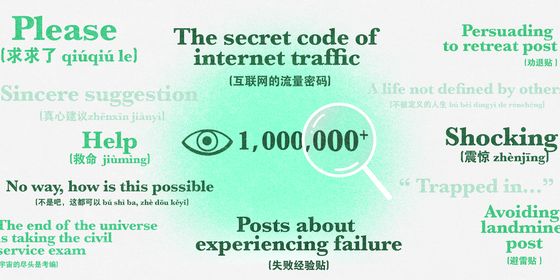Sarcastic Dongbei slang for all occasions
Dongbei, or Northeast China, is the home of Chinese comedy, and as one of the most commonly used dialects for Chinese comedians, Dongbeihua has a somewhat magical effect, turning even the most mundane conversation funny. Today there’s a bit of slang rolling around that owes its existence to this comical accent, specifically, “你咋不上天呢 ?” (Nǐ zǎ bú shàngtiān ne?), or “Why don’t you fly to the sky?” It may not make a whole lot of sense in literal translation, but it’s the perfect facetious remark to your boasting buddies.
Employ this phrase when people are, how shall I put this, taking liberties with their reputation and expectations. Take, for example, the girl who wants a handsome, gentle, romantic, and rich partner. Her friend might stop her in her tracks and say, “What else do you want? Why don’t you fly to the sky?”
Disregarding the superhero (or, in this connotation, Daoist deity) implication, this was just a common phase in China’s northeast—that is until a WeChat group turned it viral. One day someone posted “How to teach Dongbei people a lesson, click full text to see”. But, when people actually clicked it, they got this: “看把你厉害的!你咋不上天呢 ?”, (Kàn bǎ nǐ lìhai de! Nǐ zǎ bú shàngtiān ne?) or “How brave you are! Why don’t you fly to the sky?”
If you’re missing the punch-line, it’s that Dongbei folks are known for their tough, short-tempered ways throughout the nation. With this viral little joke, “why don’t you fly to the sky” hit internet pay dirt and is now becoming a common phrase the nation over.
It can be used to express anger, admiration, or even disagreement. For example, when your boss arranges too much work for you, you can complain behind their back, saying “ 干得多, 工资少,他咋不上天 呢 ?” (Gàn de duō, gōngzī shǎo, tā zǎ bú shàngtiān ne?), or “So much work with so little pay? Why doesn’t he fly to the sky?” Keep in mind that this phrase is a bit cheeky, so don’t say it in person or you’ll be flying right to the unemployment office.
So finely tuned is this simple act of satire that it can even be employed as a compliment. Let’s say someone posts a picture of a cute little kitten that can flush a toilet. You’ll find comments on the video that say, “Since you are such a genius, why don’t you fly to the sky? (你这么有才,咋不上天呢 ? Nǐ zhème yǒu cái, zǎ bú shàngtiān ne?)”
But, the obvious implication is always slightly sarcastic. Months ago, the Geminids meteor shower was trending on Weibo, but the conversation online soon moved to the impenetrable smog. So, inevitably, someone popped up with, “Wow, with such heavy smog, you guys want to see a meteor shower? Why don’t you simply fly to the sky?”
Of course, language doesn’t exist in a vacuum, and variation and evolution remain constants. You might hear someone say, “哇 ! 就差给你买个窜天猴儿了 !” (Wā! Jiù chà gěi nǐ mǎi ge cuāntiānhóur le!) or “Wow, I should buy you a sky monkey!” Rather than some rare breed of flying macaque, the sky monkey, is a popular firework, the implication being that you’ll use it to “fly to the sky”.
It is an all-purpose bit of slang that is useful in almost every situation—except maybe while you’re on an airplane.












